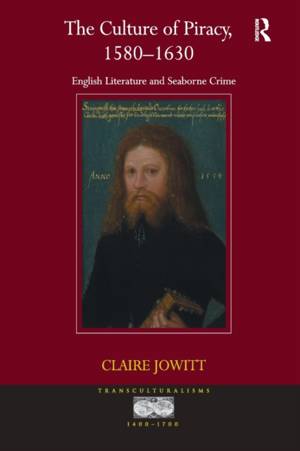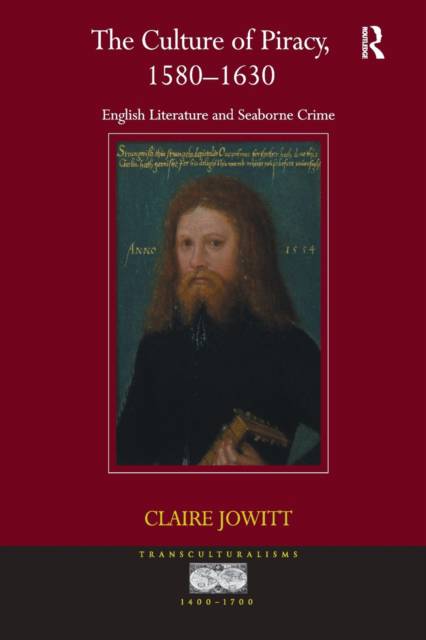
- Afhalen na 1 uur in een winkel met voorraad
- Gratis thuislevering in België vanaf € 30
- Ruim aanbod met 7 miljoen producten
- Afhalen na 1 uur in een winkel met voorraad
- Gratis thuislevering in België vanaf € 30
- Ruim aanbod met 7 miljoen producten
Zoeken
€ 102,45
+ 204 punten
Uitvoering
Omschrijving
Listening to what she terms 'unruly pirate voices' in early modern English literature, in this study Claire Jowitt offers an original and compelling analysis of the cultural meanings of 'piracy'. By examining the often marginal figure of the pirate (and also the sometimes hard-to-distinguish privateer) Jowitt shows how flexibly these figures served to comment on English nationalism, international relations, and contemporary politics. She considers the ways in which piracy can, sometimes in surprising and resourceful ways, overlap and connect with, rather than simply challenge, some of the foundations underpinning Renaissance orthodoxies-absolutism, patriarchy, hierarchy of birth, and the superiority of Europeans and the Christian religion over other peoples and belief systems. Jowitt's discussion ranges over a variety of generic forms including public drama, broadsheets and ballads, prose romance, travel writing, and poetry from the fifty-year period stretching across the reigns of three English monarchs: Elizabeth Tudor, and James and Charles Stuart. Among the early modern writers whose works are analyzed are Heywood, Hakluyt, Shakespeare, Sidney, and Wroth; and among the multifaceted historical figures discussed are Francis Drake, John Ward, Henry Mainwaring, Purser and Clinton. What she calls the 'semantics of piracy' introduces a rich symbolic vein in which these figures, operating across different cultural registers and appealing to audiences in multiple ways, represent and reflect many changing discourses, political and artistic, in early modern England. The first book-length study to look at the cultural impact of Renaissance piracy, The Culture of Piracy, 1580-1630 underlines how the figure of the Renaissance pirate was not only sensational, but also culturally significant. Despite its transgressive nature, piracy also comes to be seen as one of the key mechanisms which served to connect peoples and regions during this period.
Specificaties
Betrokkenen
- Auteur(s):
- Uitgeverij:
Inhoud
- Aantal bladzijden:
- 242
- Taal:
- Engels
- Reeks:
Eigenschappen
- Productcode (EAN):
- 9781138269408
- Verschijningsdatum:
- 16/11/2016
- Uitvoering:
- Paperback
- Formaat:
- Trade paperback (VS)
- Afmetingen:
- 156 mm x 234 mm
- Gewicht:
- 344 g

Alleen bij Standaard Boekhandel
+ 204 punten op je klantenkaart van Standaard Boekhandel
Beoordelingen
We publiceren alleen reviews die voldoen aan de voorwaarden voor reviews. Bekijk onze voorwaarden voor reviews.











